BİANET ALMANAC
2022 in Türkiye: Oppression and defiance
.jpg)
POLITICS & FOREIGN POLICY
New election law
The parliament in April passed a new election law lowering the electoral threshold and making changes to the alliance system, the method for distribution of seats to the parties and how the members of electoral councils are selected.
The move was widely anticipated as the AKP-MHP alliance's effort to gain a slight advantage in what would be a close race for the president in 2023.
Read more:
'New electoral council rules may endanger election security'
Will Türkiye's new election law save Erdoğan from losing majority in parliament?
Erdoğan recovers popular support
Amid a deep economic crisis, Erdoğan's AKP still managed to recover some of the popular support it had lost in the previous year. The AKP's voting rate rose from 30.80 percent in November 2021 to 33.12 percent in November 22, according to the average of several polls.
Read more:
Polls indicate close race between rival blocs, yet people increasingly think Erdoğan will win
The Table of Six
 Photo: AA
Photo: AA
Throughout the year, leaders of six opposition parties, dubbed as the Table of Six, held several round table meetings, but failed to create excitement among the public as millions still wait for the opposition's joint presidential candidate.
Read more:
Aiming for coalition unity, Türkiye's opposition parties hit a fork in their roadmap
Facing closure, HDP is still the key party
The closure case filed in 2021 against the HDP due to its alleged ties to the outlawed PKK, still continues. In late December, the prosecutor demanded the suspension of the party's Treasury funds, which may affect its election campaign.
However, as the strongest party in the country's predominantly Kurdish-populated regions, the HDP is still the key party as neither the ruling alliance nor the opposition coalition are able to secure more than 50 percent of the votes, which is required for the election of the president.
Read more:
Swing vote in hand, Türkiye's pro-Kurdish party holds cards close to its chest
Excluding HDP from opposition alliance against Erdoğan would be risky, warns pollster
CHP's support quadruples in four Kurdish provinces since last election, shows survey
İstanbul mayor's sentencing
.jpg) İmamoğlu and opposition leaders addressed thousands of people outside of the municipality after the court verdict. (Photo: Hikmet Adal/bianet)
İmamoğlu and opposition leaders addressed thousands of people outside of the municipality after the court verdict. (Photo: Hikmet Adal/bianet)
On December 14, İstanbul Mayor Ekrem İmamoğlu received a prison sentence and a political ban for "insulting public officials." If the verdict is upheld, İmamoğlu will lose his seat and the AKP will take over the municipality since the ruling alliance has the majority in the city council. The conviction was also a blow to İmamoğlu's prospects for becoming the joint opposition candidate for the 2023 elections.
Read more:
Addressing thousands in İstanbul, opposition leaders, mayor vow to fight injustice
'A coup against people's will': Reactions from Türkiye, world to İstanbul mayor's sentence
İstanbul mayor, interior minister trade barbs over 'terror' accusations
Election spending
Six months into the elections, the government announced "good news" one after another to recover public support. After a massive public housing project announced in September, the government raised the minimum wage by 54 percent for the next year. Also, the age limit for retirement will be eliminated, which will allow over 2.2 million people to retire immediately.
Also, the budget of a social assistance program for low-income families was raised from 15 billion to 40 billion lira and tax brackets were updated to benefit mid-income wageworkers.
Stalling Sweden and Finland's NATO membership
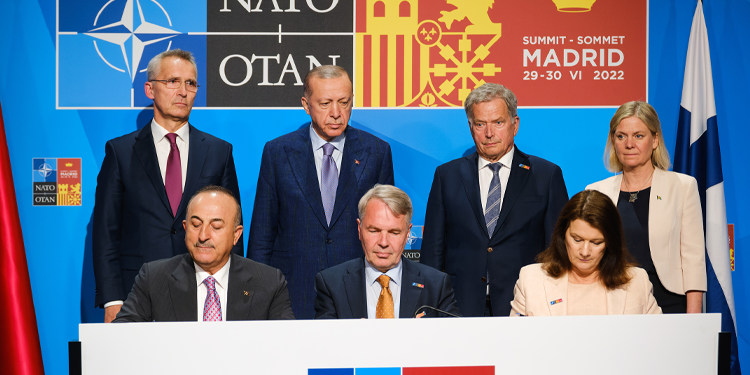 NATO Chief Stoltenberg, PMs of Sweden and Finland, President Erdoğan and FMs of the three countries at the ceremony for the signing of the memoranum in Madrid in August. (Photo: AA)
NATO Chief Stoltenberg, PMs of Sweden and Finland, President Erdoğan and FMs of the three countries at the ceremony for the signing of the memoranum in Madrid in August. (Photo: AA)
The two Nordic countries formally applied to join NATO in May, following Russia's invasion of Ukraine. Türkiye, however, said it would not approve the countries' membership unless they stop "tolerating and protecting terrorists." The three countries signed a memorandum of understanding addressing Ankara's concerns and held several meetings as to how to meet its demands, most notably the extradition requests for "terror suspects."
Mediation between Russia-Ukraine
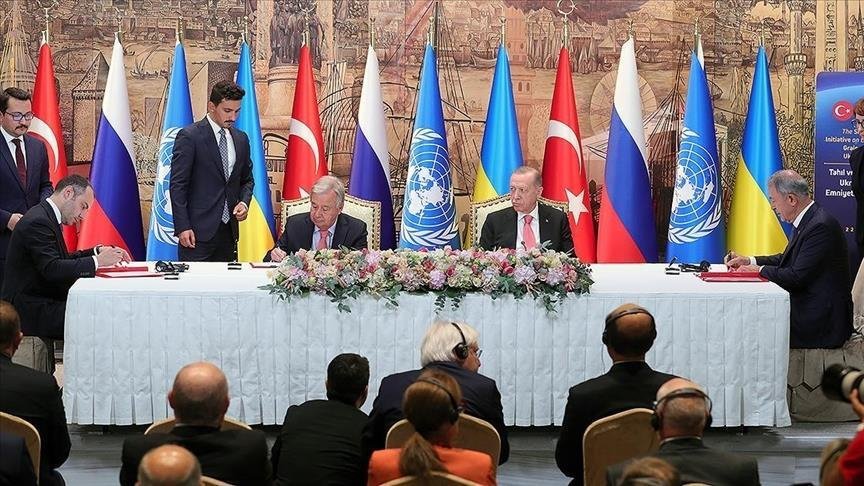 UN Chief Guterres and President Erdoğan signing the grain deal on July 22 in İstanbul. (Photo: AA)
UN Chief Guterres and President Erdoğan signing the grain deal on July 22 in İstanbul. (Photo: AA)
After Russia started a war on Ukraine in late February, President Erdoğan positioned Türkiye as a mediator between the two countries, rather than joining widespread western sanctions against Moscow. Ankara helped strike a grain corridor deal to secure the export of foodstuffs from Ukraine and a prisoner swap deal. The situation also led to billions of dollars of capital flow from Russia to Türkiye, providing the latter much-needed FX reserves.
Syria: Normalizing with Assad, seeking a ground offensive
 Türkiye's efforts to mend ties with Assad led to protests in the areas controlled by Türkiye and its allied armed groups in northern Syria. Photo shows a vandalized "Ottoman Nation's Park" in Azaz city.
Türkiye's efforts to mend ties with Assad led to protests in the areas controlled by Türkiye and its allied armed groups in northern Syria. Photo shows a vandalized "Ottoman Nation's Park" in Azaz city.
Throughout the year, Türkiye has sought to launch a new ground offensive into the Kurdish-controlled parts of northern Syria while frequently conducting artillery and drone strikes. A journalist was among the civilians killed in the strikes in late November.
Not able to get the greenlight for a new offensive from Moscow and Washington, Türkiye made efforts to normalize relations with the Assad government after over a decade. On December 28, defense ministers and intelligence chiefs of Russia, Türkiye and Syria met in Moscow.
Read more:
Seeking green light for operation against Kurds, Türkiye faces backlash from allies in Syria
Türkiye strikes oil fields, 'ISIS camp' in northern Syria
Pentagon says Türkiye's airstrikes threaten US personnel, Erdoğan says 'it's just the beginning'
Türkiye continues artillery strikes on northern Syria as US, Russia call for de-escalation
Türkiye's military operations in Syria won't be limited to airstrikes, says Erdoğan
HUMAN RIGHTS
Gezi Park verdict
.jpg)
On April 25, a court sentenced businessperson Osman Kavala to aggravated life imprisonment for "attempting to overthrow the government" after he was found guilty of organizing and financing the 2013 Gezi Park protests, where millions of people took to the streets against the Erdoğan government. Seven other defendants were sentenced to 18 years in prison for aiding the attempt. An appeals court upheld the verdict on December 29.
Read more:
Who are the eight convicts of the Gezi case?
CoE starts infringement proceedings against Turkey over Osman Kavala's imprisonment
Kavala completes five years in prison
Mücella Yapıcı examined by doctor while handcuffed
Justified ruling in Gezi trial
Message from Gezi prisoners: 'Either hatred and arrogance or fraternity and freedom will prevail'
Musa Anter case dropped
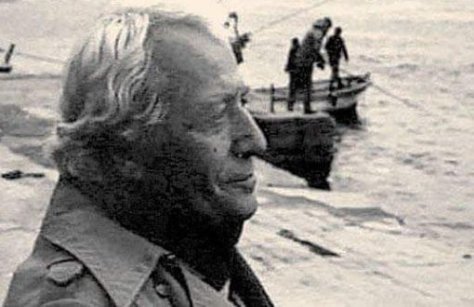
On September 21, the case concerning the 1992 assassination of Kurdish author and journalist Musa Anter was dropped due to the statute of limitations.
Situation in prisons
At least 73 prisoners, including three women, died in prisons across Türkiye between December 1, 2021 and December 1, 2022, according to a HDP report. Thirty-nine of the deceased had illnesses and 34 of them killed themselves according to the authorities. There were cases of suspicipus deaths recorded as suicides.
According to an April report by the Human Rights Association, there were over 1,500 ill prisoners in Türkiye, with more than 650 seriously ill.
Read more:
'Our children were healthy when arrested'
Doctors examined 80-year-old Kurdish prisoner 'with body language' as no interpreter provided
'Women prisoners work 12 hours a day for 600 lira'
Inflation affects Türkiye's unprecedentedly high prison population
Past decade saw drastic increase in Türkiye's prison population, ministry figures show
Prisoners at Çorum open prison forced to work but not allowed to study
Another suspicious death in prison recorded as 'suicide'
Suspicious death in Aydın Prison
FREEDOM OF EXPRESSION
Disinformation law
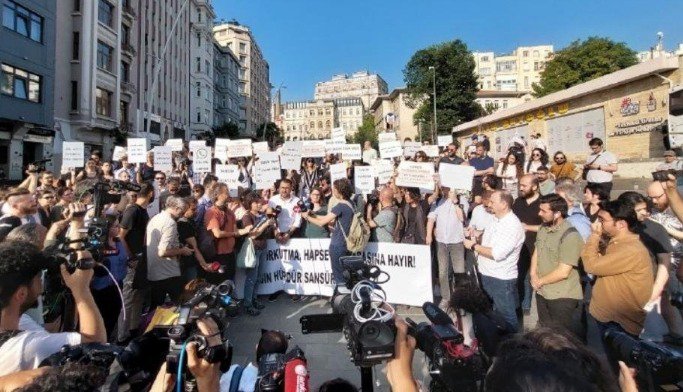 Journalists protesting the bill in June in Beyoğlu, İstanbul. (Photo: Hikmet Adal/bianet)
Journalists protesting the bill in June in Beyoğlu, İstanbul. (Photo: Hikmet Adal/bianet)
The parliament on October 14 passed a sweeping law that introduces prison sentences of up to three years for "disseminating misleading information" in what is anticipated as a new move to curtail free speech ahead of the elections.
CHP leader Kemal Kılıçdaroğlu became the first person facing disinformation charges under the new law. Sinan Aygül was the first journalist to be remanded in custody for "spreading disinformation" because of a tweet he had later corrected. He was released a few days later.
Read more:
The new disinformation law explained
How Kurdish journalists see Türkiye's disinformation law
'If needed, we'll communicate through smoke signals'
Journalists protest 'disinformation bill': 'Greatest censorship in Türkiye's history'
Pressure on Kurdish media
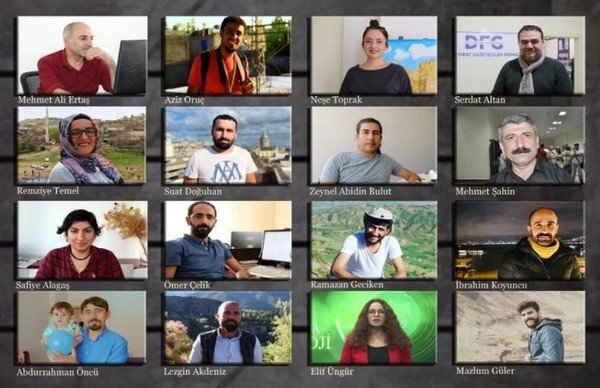
In two separate "terror" investigations, at least 25 journalists working for pro-Kurdish news outlets have been remanded in custody since June. As in most court cases against journalists, their journalistic activities were cited as evidence against them.
Read more:
Who are the nine arrested Kurdish journalists?
Sixteen journalists imprisoned in Diyarbakır waiting for indictment for five months
Kurdish journalists left without computers after police raid
Arrest of Prof. Korur-Fincancı
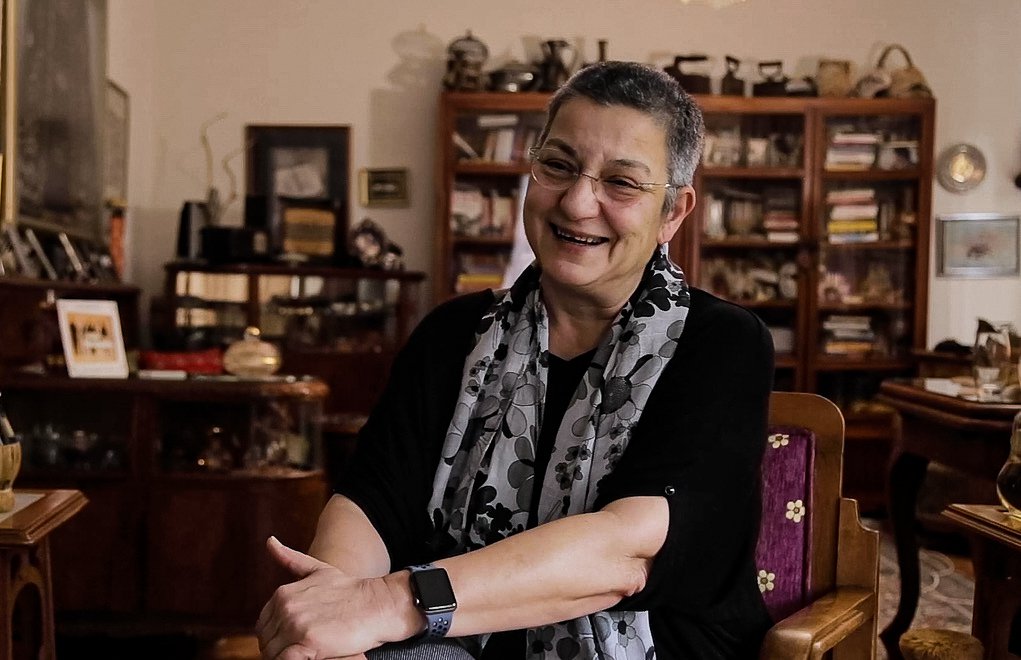
Şebnem Korur-Fincancı, head of the Turkish Medical Association (TTB) and a renowned rights advocate, was arrested in late October because of her comments about chemical warfare allegations against Türkiye. The court ruled for the continuation of her arrest after the first two hearings in late December. Korur-Fincancı is charged with "propagandizng for a terrorist organization."
Popstar's arrest over 'religious schools' joke

Renowned pop singer Gülşen spent for days behind bars because of a joke she made about religious schools during a concert in April. Prosecutors pressed charges against Gülşen in August, after a clip showing her remarks circulated on social media, which led to strong reactions from government officials.
In the video, the Gülşen is seen saying, "He [one of her band members] had studied at an imam-hatip school before. This is where his perversion comes from," sparking laughter from the audience. The singer is charged with provoking the people into hatred and hostility.
Festival and concert bans
 After two bans, world-renowned Kurdish singer Aynur Doğan was able to give concert in İstanbul on May 29. (Photo: Evrim Kepenek/bianet)
After two bans, world-renowned Kurdish singer Aynur Doğan was able to give concert in İstanbul on May 29. (Photo: Evrim Kepenek/bianet)
Throughout the year, the authorities banned several concerts and music festivals across Türkiye, sometimes after pressure from religious groups. Kurdish and dissident musicians were among those whose concerts were canceled.
Read more:
Bursa governor cancels 'all events' in city ahead of concerts of Aynur Doğan, Mem Ararat
Pop singer Aleyna Tilki's concert canceled after opposing anti-LGBTI+ rally
Outrage in Turkey's 'student city' after governor bans music festival for no reason
Türkiye's longest-running rock festival banned 'to protect public security'
The RSF Press Freedom Index
Despite scoring less points than the previous year, Türkiye climbed four places to 149th out of the 180 countries in the RSF index.
Media Monitoring Reports
bianet continued documenting violations of journalists' rights in its quarterly reports and daily updated database.
1st quarterly report: Condemning the journalist to univocality? Not that easy!
2nd quarterly report: The government is seeking its future in silencing the media
3rd quarterly report: Now it's the time for 'disinformation' tactics to silence journalism
WOMEN&LGBTI+
İstanbul Convention
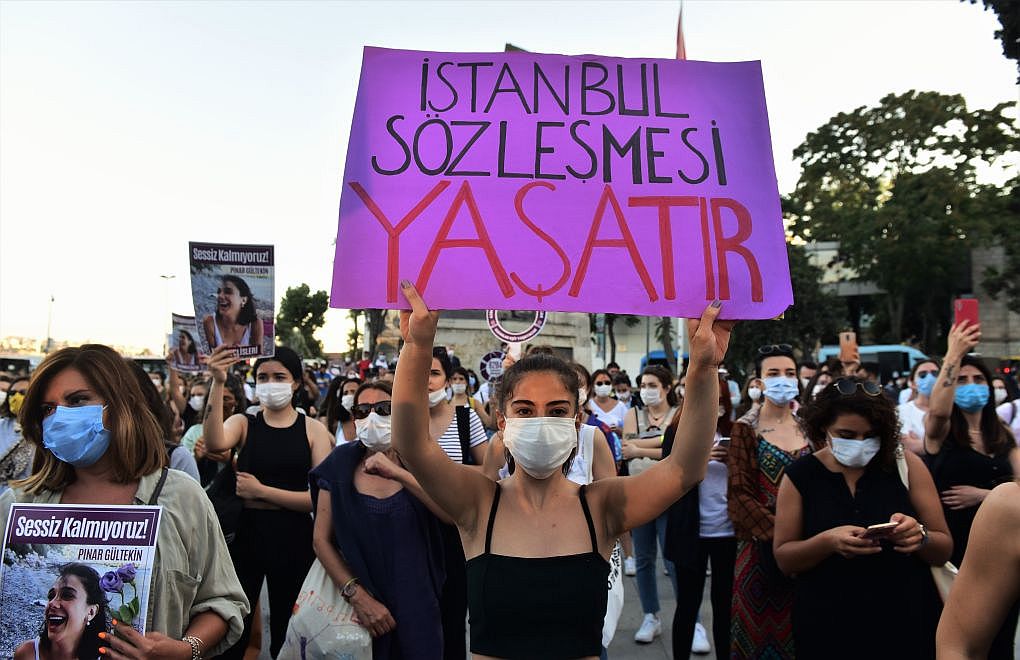 "İstanbul Convention makes women live"
"İstanbul Convention makes women live"
Over 100 rights groups and political parties applied to the Council of State, the country's top administrative court, demanding a reversal of President Erdoğan's 2021 decree pulling Türkiye out of the İstanbul Convention, which led to months of protests by women's groups.
Hundreds of women attended each hearing, but the Council eventually rejected the request for the annulment of the decree despite the prosecutors demanded otherwise.
The government in March 2022 introduced new legal arrangements regarding violence against women, allowing courts to arrest people who intentionally injured a woman.
Bans on Women's Day, LGBTI+ Pride demonstrations
.jpg) Feminist Night March on March 8 in Cihangir, İstanbul. (Photo. Yağmur Karagöz/bianet)
Feminist Night March on March 8 in Cihangir, İstanbul. (Photo. Yağmur Karagöz/bianet)
Women and LGBTI+s took to the streets despite bans. Hundreds of people were detained suffered police violence during the demonstrations. Meanwhile, pro-government groups were free to organize "anti-LGBTI+ rallies" across the country.
Read more:
Police attack Pride Parade, detain 373 people
November 25: Over 100 women detained in İstanbul, two fainted after being beaten by police
Women's Day: 'The feminist revolt will not end without establishing an equal and free world!'
Police prevent Boğaziçi Pride Parade, detain dozens
Aysel Tuğluk's release
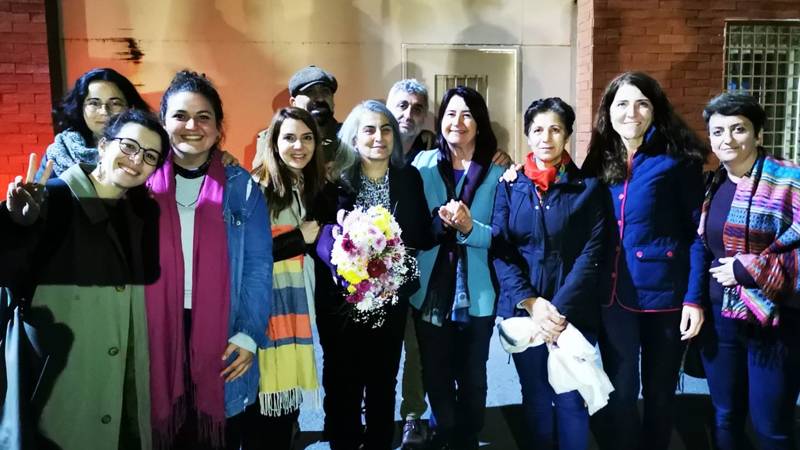
A prominent Kurdish politician who was diagnosed with dementia in March 2021, Aysel Tuğluk was released in late October after an intense campaign by her party and women's groups, especially the "1000 Women for Aysel Tuğluk" group.
Where is Gülistan Doku?
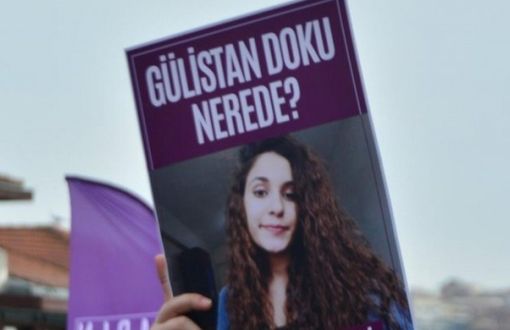
"Where is Gülistan Doku?" was one question addressed to the authorities by the women insistently, again in 2022.
A university student went missing on January 5, 2020, in Dersim, Gülistan Doku has become a symbolic case of disappearances and feminicides in Türkiye.
Child abuse in religious community
A years-long child abuse case was revealed when Timur Soykan, a columnist for the daily BirGün, revealed a woman's criminal complaint that she had been forced to marry a 29-year-old man at the age of six.
After public outrage, the investigation dragging on for two years progressed and the woman's father and ex-husband, both prominent figures in a politically influential religious sect, were arrested.
Right to alimony
After years of campaigning by a lobby of "alimony victims," the Justice Ministry announced a new legal arrangement eliminating indefinite alimony payments. The government later withdrew the proposal, following objections and protests by women's groups.
LABOR
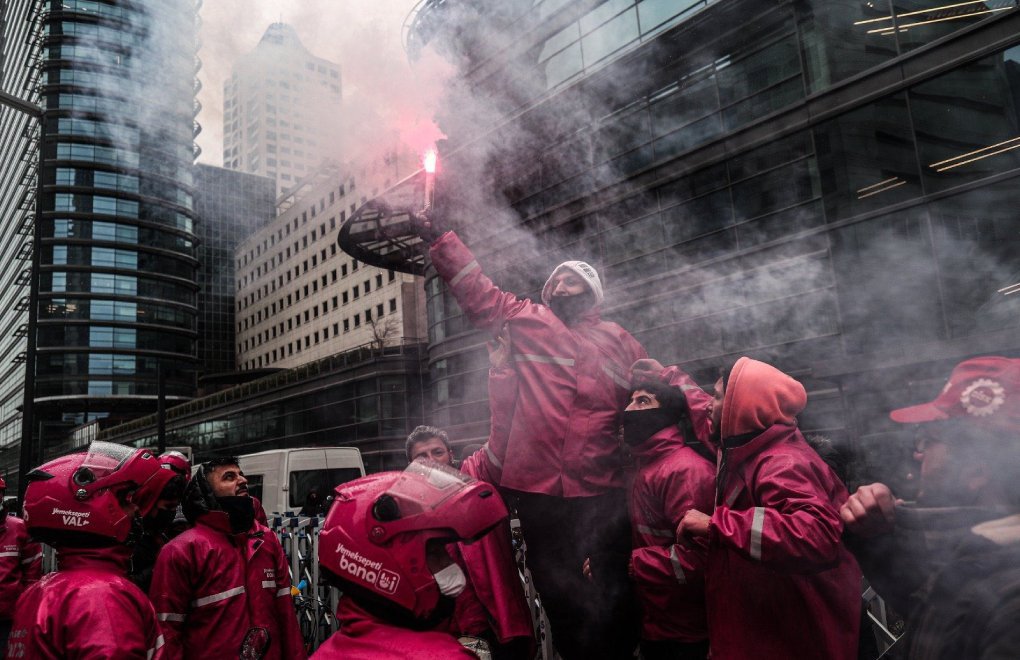 Yemeksepeti workers celebrating a court decision in favor them in May.
Yemeksepeti workers celebrating a court decision in favor them in May.
Türkiye was again included among the 10 worst countries for workers in the 2022 edition of the Global Rights Index of the ITUC, which ranks 148 countries by their respect for workers' rights.
However, amid a skyrocketing inflation and increasing poverty, 2022 saw more strikes than any other year in the AKP's two-decade rule. In January and February alone, 108 strikes had been caried out, with 49 ending in favor of the workers.
Journalists at the BBC Monitoring's İstanbul office conducted the first strike in the profession in 13 years to successfully
The wave of strikes started with couriers and delivery workers of e-commerce companies, most of whom work as gig workers.
In the following months, workers from various professions, including factory workers, grocery chain workers, doctors, lawyers and teachers, hold strikes and protests across the country.
Unemployment
While Türkiye's official unemployment rate was not particularly high around 10 percent, the broad unemployment was over 20 percent and the youth unemployment was around 25 percent throughout the year.
Workers killed on the job
Türkiye continued to do very poorly with regard to health and safety at work this year.
According to the Health and Safety Labour Watch (İSİG), an independent working group, around 5 people died daily on the job in Türkiye adding up to 1658 deaths during the first 11 months of 2022.
May Day
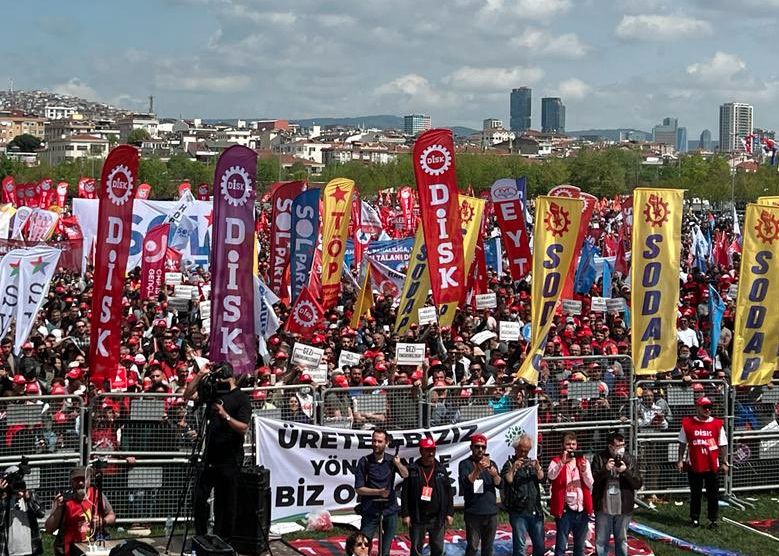 The May Day rally in Maltepe, İstanbul.
The May Day rally in Maltepe, İstanbul.
Thousands of people across Turkey attended events to mark May Day. In İstanbul, thousands of people gathered in the Asian-side district of Maltepe as the Taksim Square, where the celebrations had been held until early 2010s, was banned once again. Police detained more than 150 people who attempted to march to the square.
Only union leaders were allowed in the square, which was surrounded by hundreds of police officers and barricades, to lay carnations at the Atatürk Monument to commemorate those who were killed in the 1977 May Day massacre.
Women's poverty
Amid increasing prices of sanitary pads and other menstrual and hygiene products in Turkey, women submitted a petition to the Ministry of Treasury, requesting free sanitary pads.
Also, after years of campaigning, the Health Ministry introduced free HPV vaccines, starting from married people.
ECOLOGY
Locals and environmental groups continued to fight environmental destruction across the country
Cyanide spill from gold mine
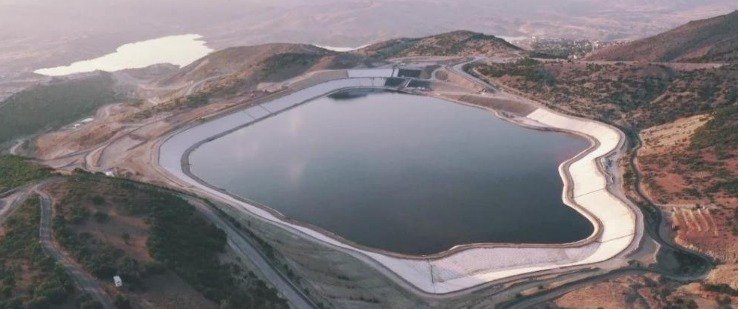
After the revelation of cyanide spill from a gold mine in İliç, Erzincan, into Euprates River, the company operating the mine was fined and the operations of the mine were suspended for three months between June and September.
İkizdere
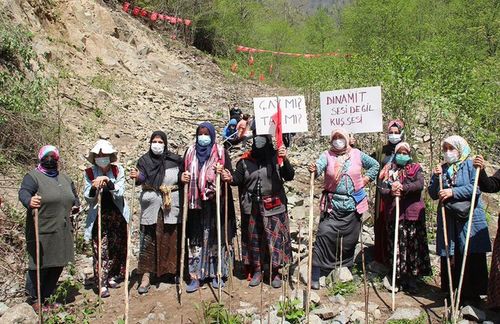
Locals in the İkizdere district of the Black Sea province of Rize fought against the expropriation of their property for a quarry built to provide raw materials for a logistics port construction.
The villagers set up a tent at the entrance of the İşkencedere Valley to prevent the works for the quarry, suffering from gendarmerie violence many times.
The Rize Administrative Court has still not handed down its ruling despite an expert report in favor of the complainants.
Read more:
Women resisting stone quarry in İkizdere declared 'women of the year'
Luxury hotel in a national park
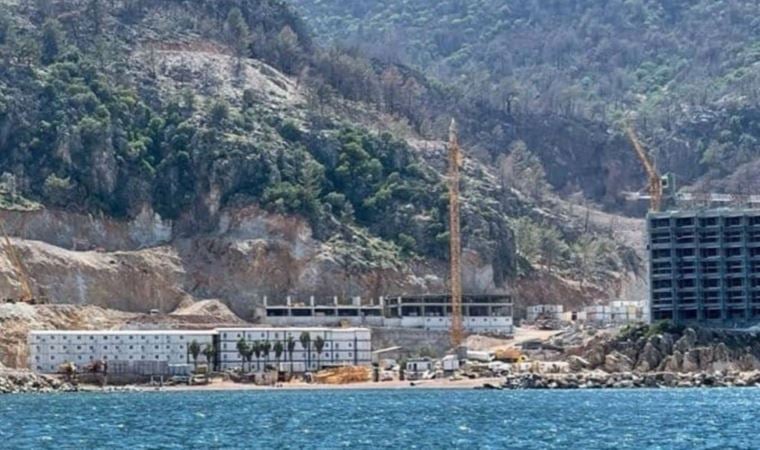
Days after the 2021 wildfires that continued for 13 days in Marmaris, a popular holiday resort in Muğla, southwestern Türkiye, the Environment Ministry concluded that an environmental impact assessment was not needed for a luxury hotel to be built in a national park in Kızılbük area.
Thanks to the resistance of the locals, the company had to announce on August 8, 2022, that the construction work was halted in the project.
The nuclear aircraft carrier

In the summer of 2022, a company in Aliağa, İzmir, got the contract for the scrapping of the São Paulo nuclear aircraft carrier from Brazil, causing concerns about tons of asbestos that the ship contained.
After weeks of campaigning and revelations that the ship might have contained much more asbestos than stated, the Environment Ministry canceled the contract for the ship's dismantling.
Tree felling in coutheast
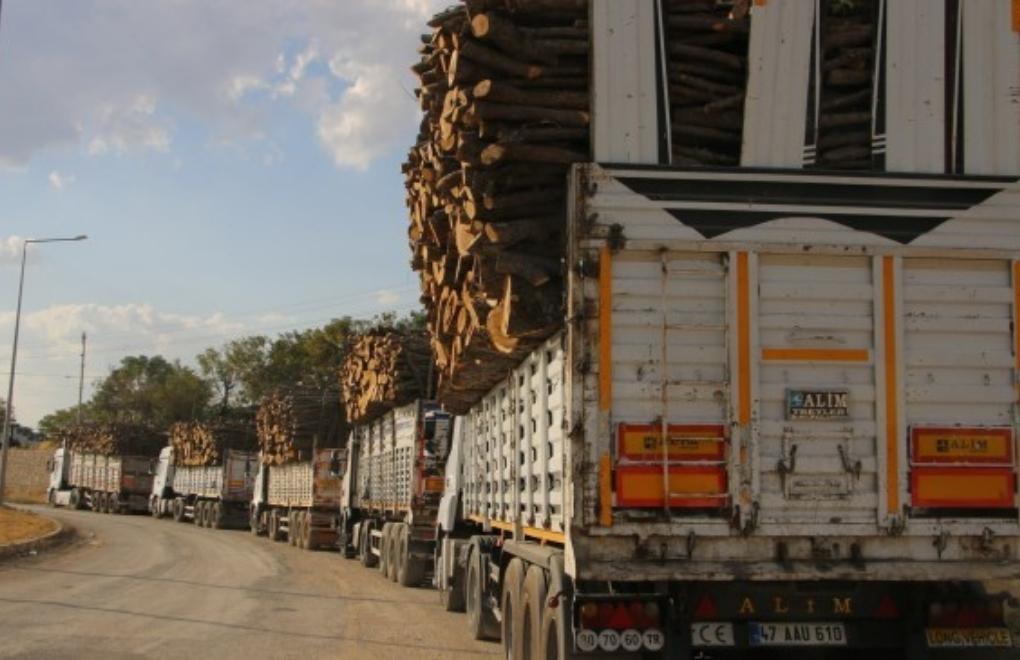
This year saw massive tree fellings in the country's mostly Kurdish-populated southeastern provinces, especially Şırnak.
About 1,000 tons of trees were cut and transported to various cities to be sold, according to reports. In September, ecology activists from all around Türkiye gathered in Şırnak to demand a end to mass tree felling.
The Akbelen Forest resistance
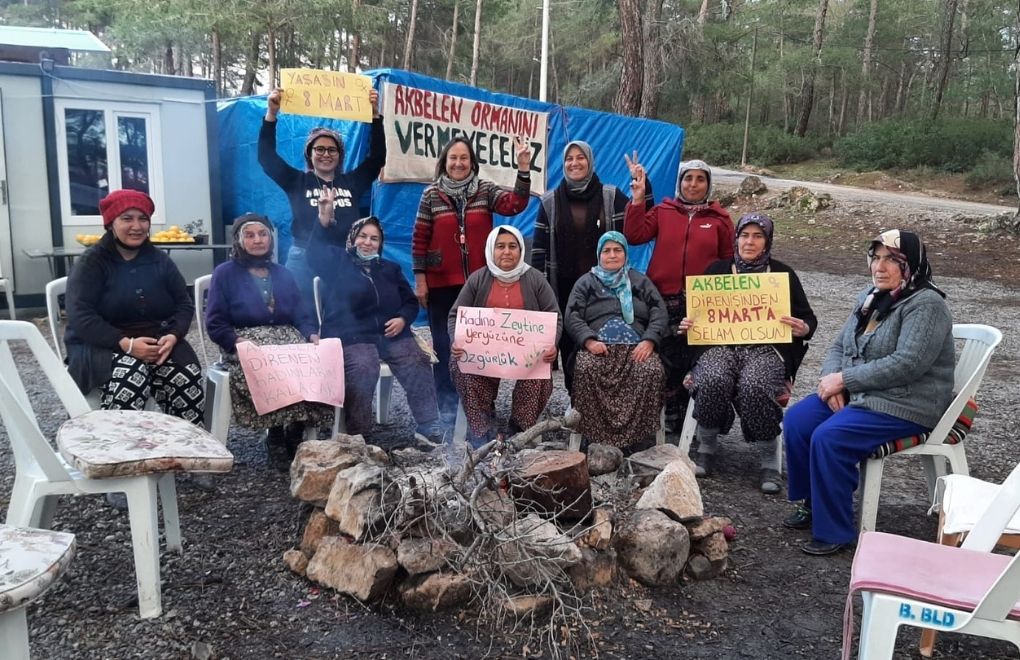
In the İkizköy village in Muğla, villagers have been fighting since 2019 to prevent the construction of a coal mine in the Akbelen Forest.
Legal proceedings and the villagers' resistance at the entrance of the forest continue.
Read more:
Energy company wants villagers to cut down their olive groves in İkizköy
Olive groves opened to mining activities ahead of expert examination in Akbelen Forest
Struggle for Validebağ Grove
.jpg)
The residents of the district and ecology activists have been opposing any construction in the coppice forest and keeping watch from time to time for many years. They are saying that this small forest is home to many animals and plants and should be protected as such.
Struggle against nuclear power plant in Sinop
This struggle against the building of a second nuclear power station Sinop, by the Black Sea, is still continuing. Although it was announced in 2018 that the project was stopped the environmental impact assessment process has still not been stopped.
Lake Marmara dries up
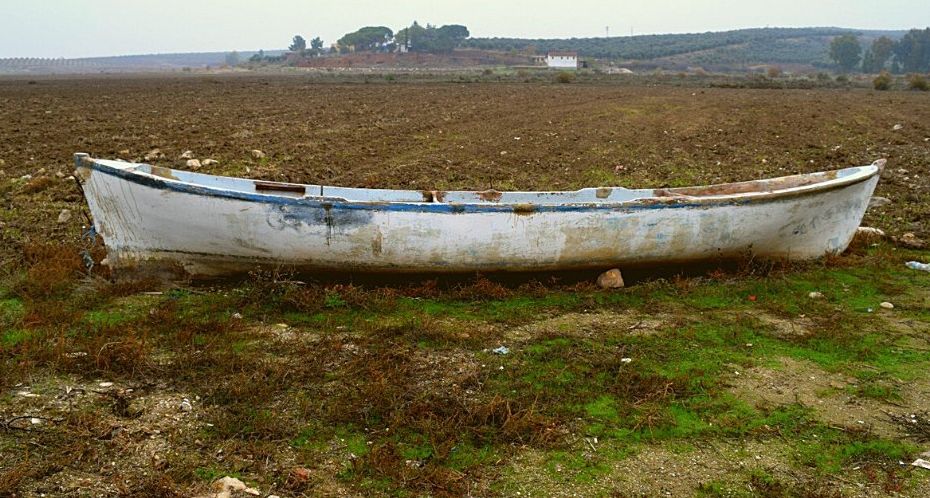
The first climate lawsuit has been filed on behalf of Marmara lake fishers for the dried lake of Marmara. The struggle for carrying water to and saving the lake still continues. (VK/PE)




.jpg)